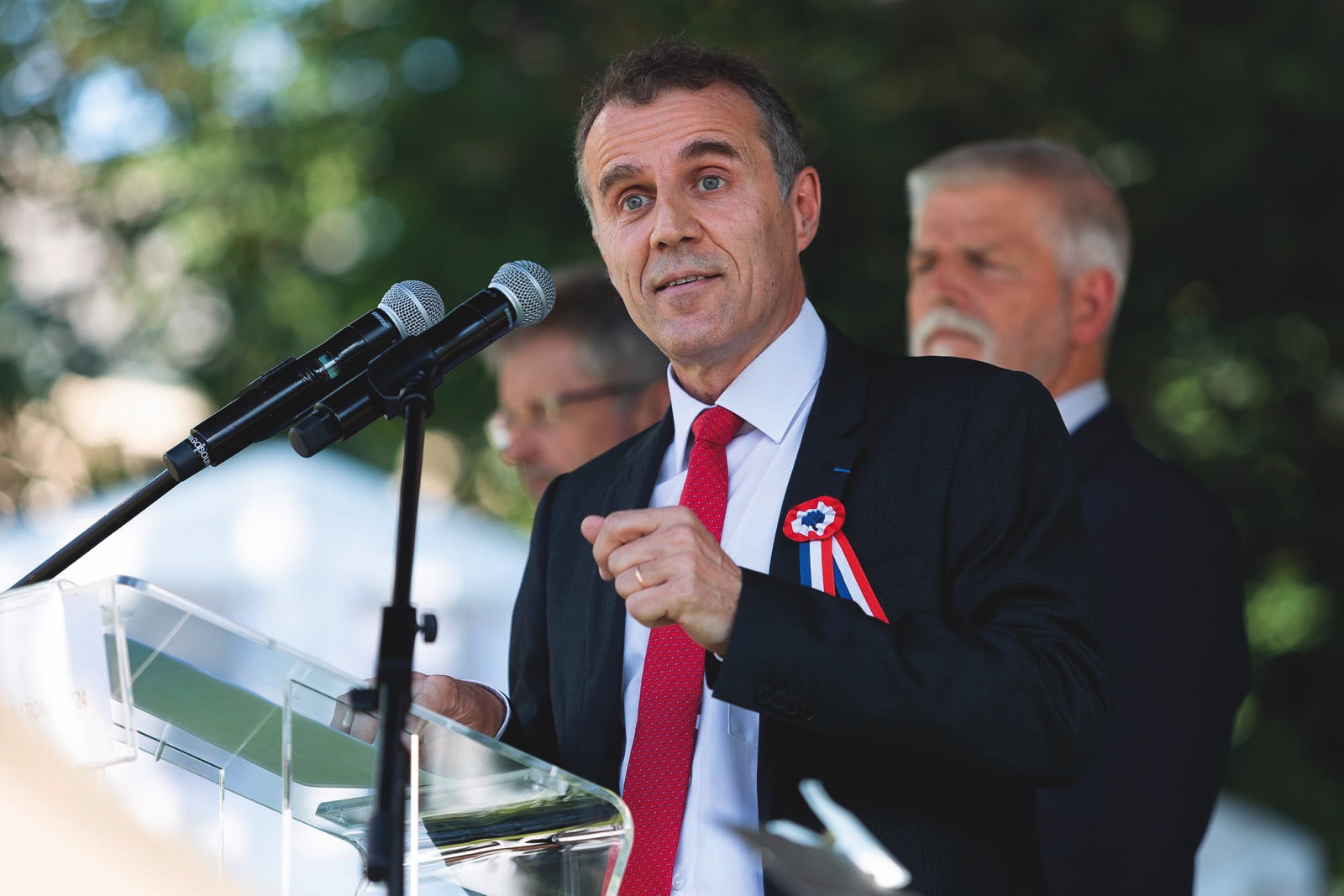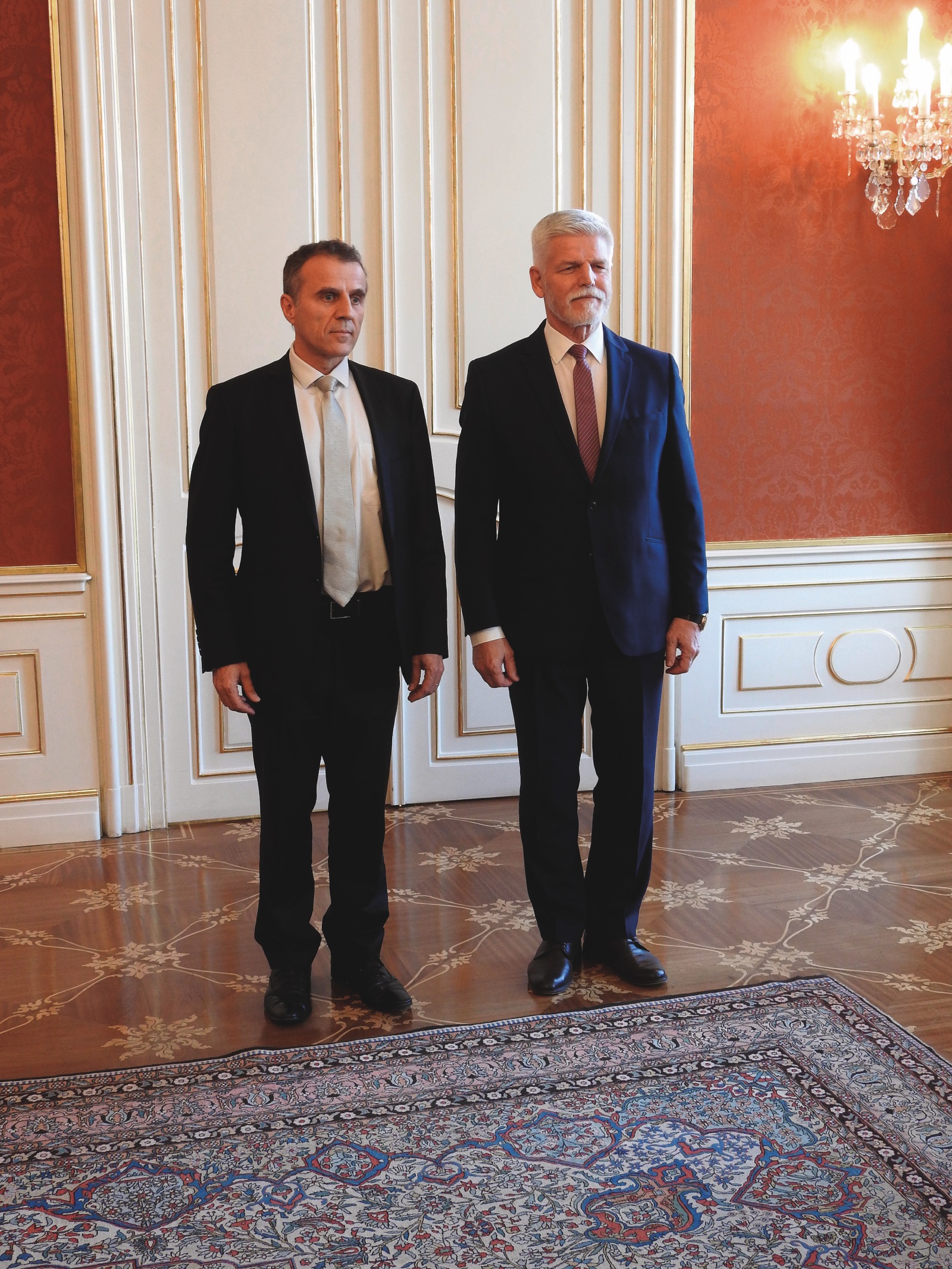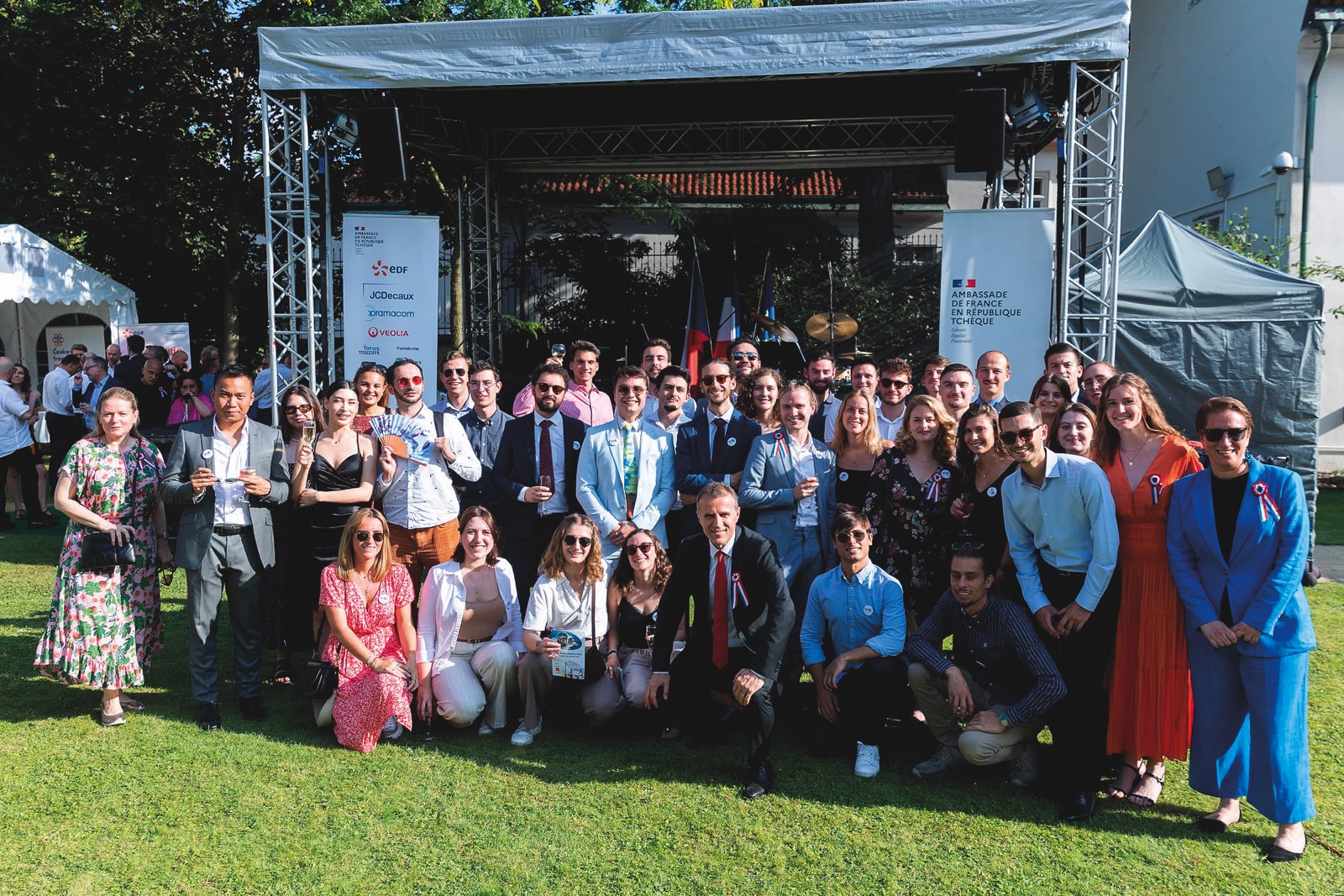The EU must act as a geopolitical power

H.E. Mr. Stéphane Crouzat, Ambassador of France
Text: Martina Hošková and M.Zisso; Photo: Archive
Tell us about yourself. What made you become an ambassador?
I was born and educated in Paris, a city in which I feel very much at home. I studied humanities and political science. I was interested in international relations early on, but only joined the diplomatic service in my thirties, after having worked for the Ministry of Foreign Affairs in the cultural sector. Postings took me to New York, Warsaw, and Dublin for my first posting as ambassador. Climate change issues have been a very important part of my diplomatic experience. First, I was a diplomatic advisor to Ségolène Royal, Minister of Environment and Energy, during COP21 and the adoption of the Paris Agreement. Later, I became Climate Ambassador, a position I held just before being nominated to Prague.
This experience has made a lasting impact on me. I came to realise how existential a threat climate change has become. I often bring it up in my conversations here in Czechia.
You have been in the Czech Republic for a few months now. Can you share some of your impressions?
My term here started in the most intense way imaginable. I arrived on March 3rd (after coming back from Tokyo the day before from my previous position), presented my letters of credence to President Pavel on March 4th, and on March 5th I was welcoming President Macron for an official visit! I am very thankful to the Czech authorities, who allowed me to be operational from day one. Those first days were a fantastic opportunity for me to meet key stakeholders of the bilateral relation, especially regarding our cooperation in the field of energy, with the Czech-French nuclear forum, and in culture, with a memorable visit to the National Gallery, where our President stayed for an hour and a half to admire Czech masterpieces and the remarkable French collection bought by Czechoslovakia in 1923. Prague is a wonderful city, which I love to discover every day. I have also been travelling around the country as much as possible, to places such as Plzeň, Brno, Vysočina, Třebíč, Ostrava, České Budějovice, Karlovy Vary, and lately to Most for the Olympic Festival. Prague is so beautiful that it would be easy to stay here, but I feel it is important to move around, discover Czechia in its diversity, and boost regional cooperation.

From right: President Petr Pavel and H.E. Mr. Stéphane Crouzat, Ambassador of France
How many countries did you serve in before?
I have served in New York, at our permanent mission to the UN; in Warsaw, as a cultural counsellor; and in Dublin for my first posting as ambassador. In my previous life, I was director of the French Institute in Edinburgh, and did my national service at the French embassy in Jakarta, Indonesia.
Does being an ambassador fit into your lifestyle?
I like meeting interesting people and discovering new places, so, yes, this is the ideal job for me.
Many people share your hobby of discovering new places, and many do so in France. How do you promote your country?
France is the first touristic destination in the world. As you know, the Olympic Games took place from July 26th to August 11th, followed by the Paralympics from August 28th to September 8th. This has been a tremendous opportunity to showcase the best of France, while hosting the biggest sporting event in the world.
Our embassy in Prague plays its part in promoting France as a touristic destination, by hosting “Atout France”, the agency dedicated to this purpose. This involves close cooperation with French regions and localities, notably regarding winter sports or the coastlines. We also do a lot to promote France as a place to invest in, with the yearly “Choose France” event where top CEOs (including Czech CEOs) are invited to Paris. We promote, through our French Institute in Prague, our network of six Alliances Françaises throughout Czechia, the learning of French as a foreign language, and all things related to French culture. Stay tuned, amongst many other exciting upcoming events, for the upcoming French Film Festival in November!
France is a leading and founding member of the EU. How do you see the future of not only the EU but of Europe as a whole?
The war in Ukraine has considerably reshaped the way Europe should see itself and its surroundings. Even before this brutal aggression, France advocated for a strong Europe, one more independent strategically and industrially, by ramping up our defence capacities, as well as our ability to be independent energetically or regarding access to raw materials. This was spelled out by President Macron in his speech at the Sorbonne University as early as 2017, and again in his Sorbonne speech in May 2024, and pushed throughout our French Presidency of the Council of the EU in 2022 with our “Versailles agenda”, in reference to the summit that took place in March 2022. Facing Russian aggression and a world which is ever more brutal and competitive, Europe could indeed face decline. This can be avoided if we stay true to our values and the principles that founded the EU, and act as a geopolitical power, without being shy or naïve.
A crucial next step will be the enlargement of the EU, a process that has significantly moved forward since 2022. We need to find ways to make the EU as efficient with new Member States as it currently is. We count on all our partners to participate in this debate.
Can you evaluate the current status of Czechia – France bilateral relations?
Our economic relations have continuously grown since Czechia entered the EU, and we are Czechia’s 6th biggest supplier, 4th biggest client, and 3rd biggest investor. On a cultural level, we have implemented solid long-term partnerships between the Czech Narodní galerie and the Centre Pompidou and the Louvre. The succession of our EU Presidencies in 2022 allowed for a constant dialogue over key European issues, which has not stopped since and will continue under the new Commission. The visit of President Macron last March gave us a precise roadmap of bilateral partnerships to undertake or deepen, across the board, thanks to the action plan of our strategic partnership signed by President Macron and Prime Minister Fiala on March 5th. The action plan covers all areas of cooperation, from security and defence to trade, transport, scientific, educational, and cultural exchanges, and more.
We have moved closer in recent years, notably regarding our unwavering common support to Ukraine and our determination to make nuclear energy a key element of the energy transition in the EU with the European nuclear alliance. However, the decision by the Czech government, announced on July 17th, not to select EDF as the “preferred bidder” for the construction of new nuclear reactors at Dukovany – a 100% European bid – has been a setback. EDF stands ready to pursue or relaunch discussions with CEZ and the Czech government should circumstances change. France will continue to invest in building energy sovereignty at the European level, through the European nuclear alliance and its own nuclear renaissance programme.

The Embassy of France team
Let us conclude with a wish for both countries – will you?
I can only wish that our bilateral relations move forward to even higher levels. Had EDF won the tender of the nuclear reactors of Dukovany, we would have had our common work carved out for us. While we regret that Czechia did not make a European choice in a key industry for our continent, we have to move forward and build on our common interests in every sector. The Czech embassy in Paris will have a great new ambassador, Jaroslav Kurfürst, who will also contribute to making our countries ever closer.
As for Czechia, I hope it will keep growing strong, as it has over the last twenty years thanks to its accession to the European Union, and that more and more Czechs will recognize the benefits of having joined the EU and being an active player in it. Czechia has much to offer to the EU in terms of being a staunch defender of individual freedoms and the rule of law, with its legacy of Václav Havel and the Velvet Revolution. Keep enjoying the taste of freedom!

